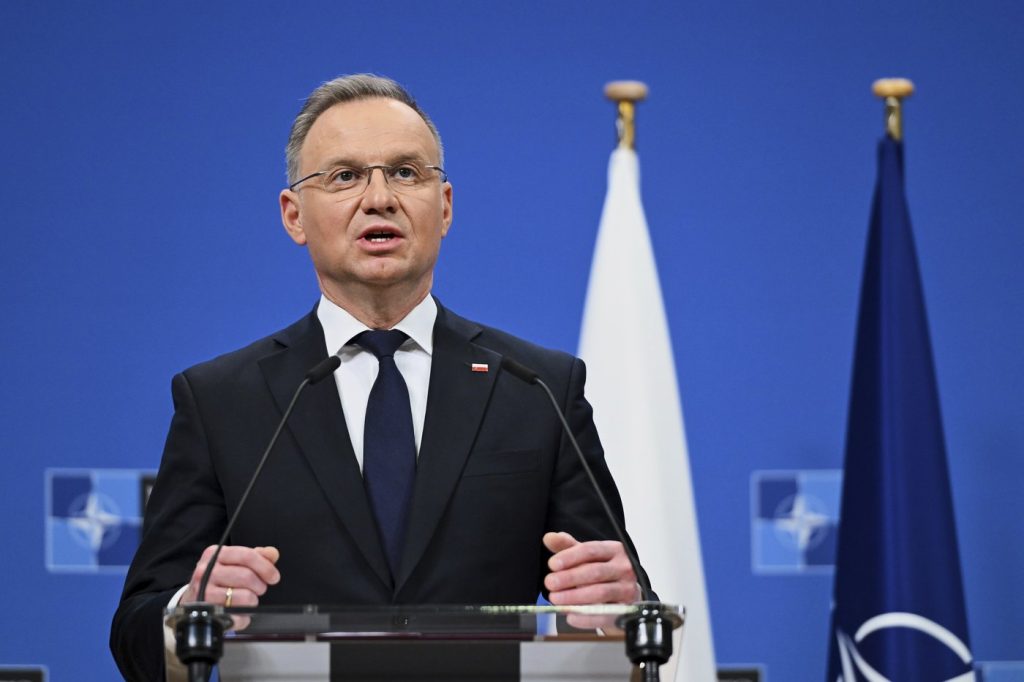WARSAW, Poland (AP) — Poland's President Andrzej Duda has reiterated his call for the United States to deploy nuclear weapons to Poland as a means of deterring potential aggression from Russia. This latest appeal underscores the growing concerns of Poland, a frontline NATO member, regarding security threats emanating from the east.
In an interview with the Financial Times published on Thursday, Duda refreshed his earlier appeal made to the Biden administration in 2022. The urgency of his request reflects the heightened fears surrounding Russia's military intentions in Eastern Europe. Duda has emphasized that increased nuclear protection would significantly bolster security for Poland, a country that shares borders with Ukraine, Belarus, and the Russian enclave of Kaliningrad.
Following Duda's comments, his international affairs adviser Wojciech Kolarski appeared on Poland's RMF FM radio. He argued that the presence of nuclear weapons in Poland would contribute positively to national and regional security. As a key NATO nation along the alliance's eastern flank, Poland is particularly vulnerable to potential threats stemming from Russian military capabilities.
In response to Duda's call for U.S. nuclear deployment, Donald Tusk, the Prime Minister and a political opponent of Duda's, disclosed last week that Poland is in discussions with France regarding President Emmanuel Macron’s proposition to utilize France’s nuclear deterrent as a protective measure against Russian threats. Tusk’s comments were made in parliament, shedding light on the evolving security dynamics in Europe, especially amid worries about possible U.S. disengagement from European defense commitments.
President Macron has recently articulated a need for a "strategic debate" on leveraging France's nuclear capabilities for the security of European allies. In a televised address, he described Moscow as a significant threat to both France and the broader European continent. This signals a shift in France's approach to national and collective security concerns in light of escalating tensions between NATO nations and Russia.
Furthermore, Macron's statements have prompted reactions from Moscow, which labeled the idea of a European nuclear deterrent as "extremely confrontational." The strategic conversation surrounding nuclear capabilities in Europe highlights the delicate balance of power and the necessity for member states to reassess their security strategies in the face of evolving geopolitical threats.
Notably, France stands as the only nuclear power within the European Union, placing it in a unique position to influence the continent's security architecture. The discussions surrounding nuclear defense mechanisms not only reveal the apprehensions of countries like Poland and France but also underscore the complexities involved in ensuring European security amidst a resurgent Russia.











